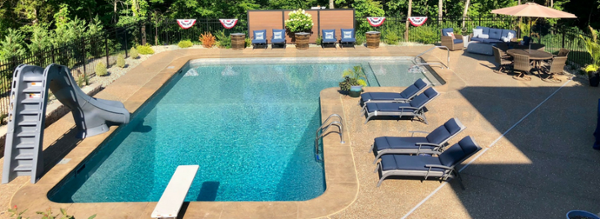If you add a salt system to an above ground or inground pool it should not void the warranty however some pool manufacturers may elect to not cover damage caused by misuse of a salt system by excluding its use in their written warranty.
If you test the water of an older pool that has been using chlorine for many years you will find a slight salt level in the water. If you add a salt system to the pool's equipment the slightly salinated water then passes through the electrolytic cell to produce chlorinated water, which prevents algae and purifies the pool. As the chlorinated water kills bacteria and burns up it converts back to salinated water and the process starts over again.

If the salt system setting is turned up to high it could produce a very high level of chlorine which could cause corrosion. If you test your pool chemicals on a weekly basis and maintain a 1.0-3.0 chlorine level and pH level of 7.4-7.6 corrosion will not be a problem for your pool.
An easy way to protect your saltwater pool may sound silly, but it's to add Pepper. However, just like you wouldn't use table salt for the salt in your pool, we're not talking about regular pepper. See more here!
Here are some additional pool maintenance resources to help keep your pool crystal clear!
- Finally! An Easy Solution to Pool Maintenance
- The perfect solution for your saltwater pool: Pepper!
- Chlorine vs. Saltwater vs. Mineral System Pools: Pros and Cons
- How to clear a murky green pool fast with Revive
- How to Maintain a Saltwater Swimming Pool
- Make keeping your pool clean and clear easy with E-Z Pool
- How to Convert a Chlorine Pool to a Saltwater Pool
- Pool opening supply buyer's guide
- How To Troubleshoot Problems with Your Salt Cell
- How to identify and treat pool algae
- Type of Salt to Use with a Swimming Pool Salt System
- Saltwater Above Ground Pools: A Buyer’s Guide
- How To Clean the Salt Cell on Your Saltwater Swimming Pool
- What is the Benefit of Switching to Salt Water?


.jpg?width=700&name=pool%20essentials%20POOL%20LINERS%20(option%202).jpg)


